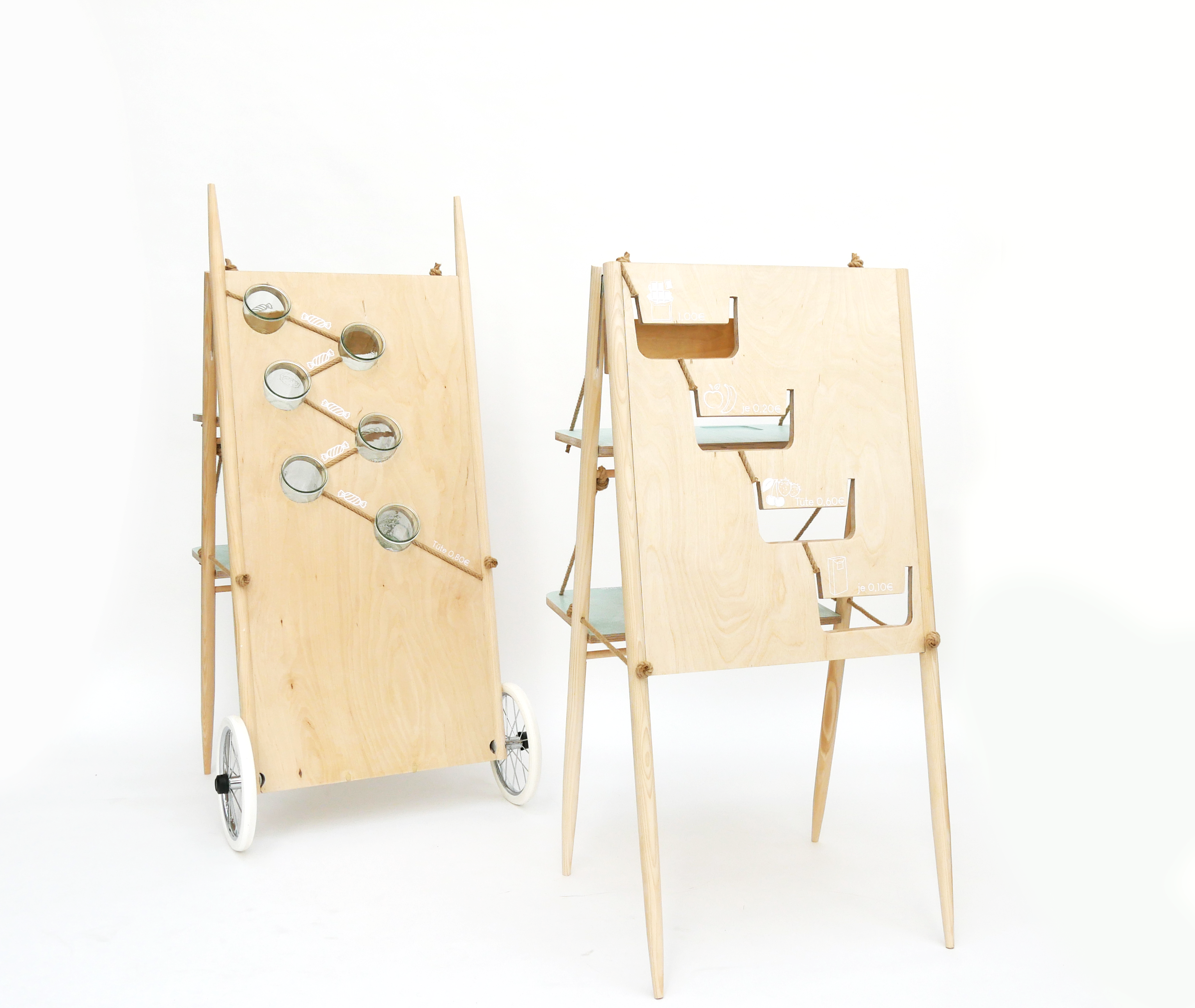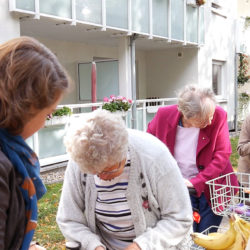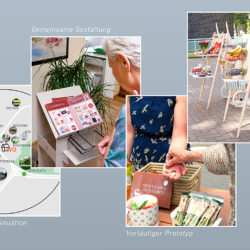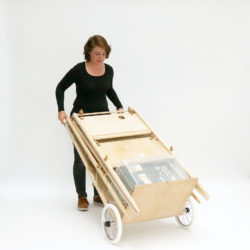Schnick-Schnacken
Description
Schnick Schnacken is a participatory designed market stall that creates an activating shopping experience and communication with e.g. neighbours or passers-by in the immediate vicinity of their home for people with dementia who live in isolation in a private home or in a assisted living community for people with dementia and thus promotes social participation.What is the Topic?
People with dementia continue to spend a large part of their remaining life at home or increasingly live in assisted living communities. Participation in social life, however, becomes more complicated as the symptoms of dementia increase and people isolate themselves and often develop various fears. This has a negative influence on the course of the disease, and there is a lack of activating and encouraging everyday structures, speech, stimulation and a feeling for everyday competence. Shopping is an internalised activity that can be carried out largely autonomously by people with dementia for a long time and yet is no longer practised. Shame, fear, long distances and other dangers in road traffic prevent people from going to the (super)market.
Why does it look like this?
The "Schnick Schnacken" market stand was developed in a participatory and creative process in collaboration with 12 people from an assisted living community for people with dementia. In weekly shopping situations, different versions of mobile market stalls, which can be easily used by caregivers, were designed and optimized. Important requirements were above all barrier-free shopping as a joyful, communicative experience with a special selection of staged goods and a quick assembly, disassembly and stowage of the mobile market stall by caregivers, etc.
What is special?
People with dementia often do not dare to go out into the public from their own safe four walls. The environment is very overwhelming for them and scares them. Nevertheless, shopping is a basic need and brings a lot of variety and joy. The shopping stall, which can be set up close to the house in the driveway or in the front garden, motivates the residents to leave the house again and venture into everyday life outside the assisted living community. With the mobile market they can "practice" shopping, meet neighbours and get into conversation. This creates spontaneous contacts between neighbours and passers-by with and without dementia, and inhibitions on both sides are reduced. Shopping strengthens people with dementia in their sense of security and competence, so that in the best possible case the hurdle of walking to the local supermarket on your own can even be reduced.
What is new?
The number of people suffering from dementia in Germany is expected to double by 2050, reaching about 3 million. Among other things, sufferers lose their cognitive abilities and the ability to communicate (verbally) during the course of the disease. Currently, the only treatment options available are those that improve the quality of life. There is no cure for the disease. An important part of therapy is mental and physical activation, which can have a positive influence on the course of the disease. Social participation, communication and the experience of autonomy is of particular importance for the patients. The market stall enables people with dementia to train their everyday skills and contributes to improving their quality of life. In the 'Schnick Schnacken' project, all the "peculiarities" that dementia brings with it are allowed: it must be possible for a customer to forget to pay, or if someone has a taste of candy, this is not a problem. At this kiosk, it is not the weaknesses that are emphasized, but the skills that the elderly possess. Due to the positive atmosphere, small conversations over a glass of lemonade are created between the sick person and the oriented neighbours and passers-by. This simple experience is so important for the residents that they will remember it for a long time.




